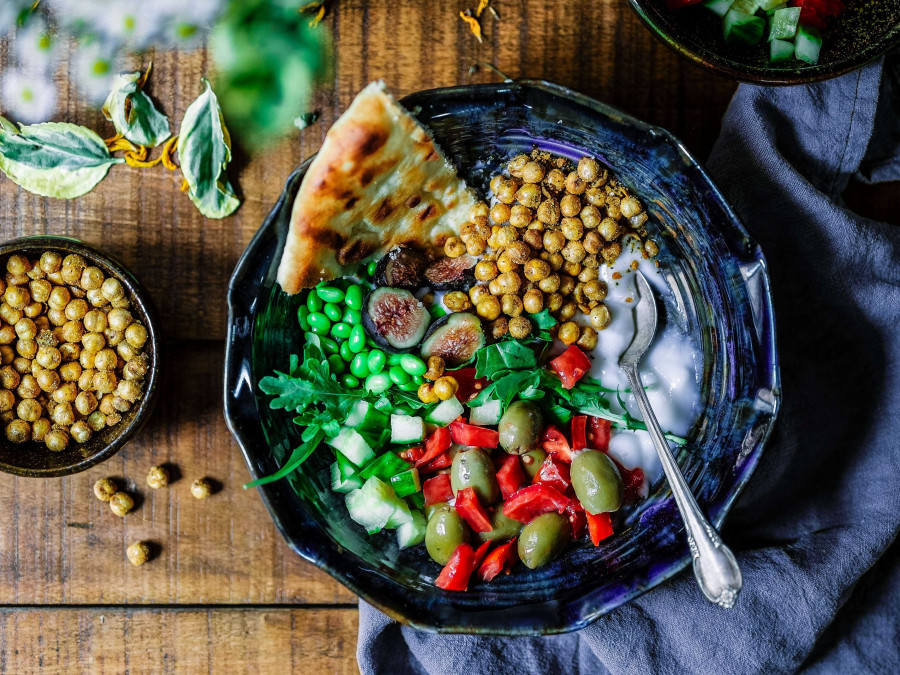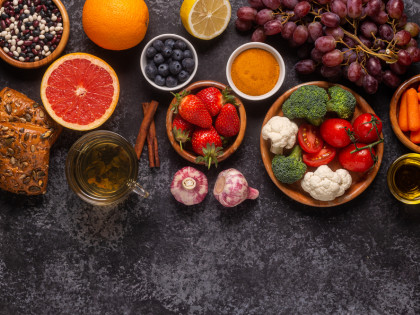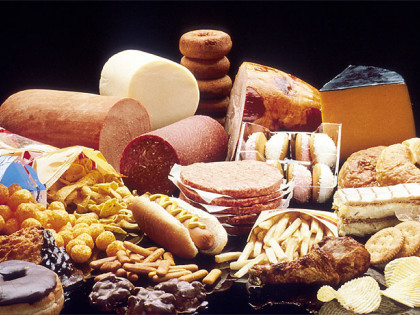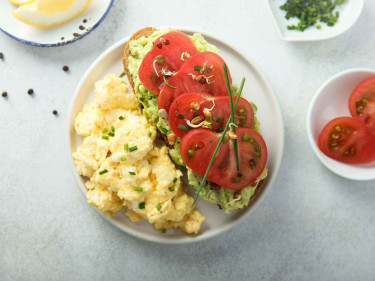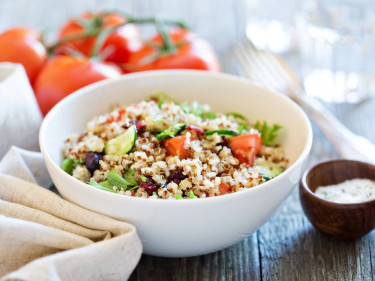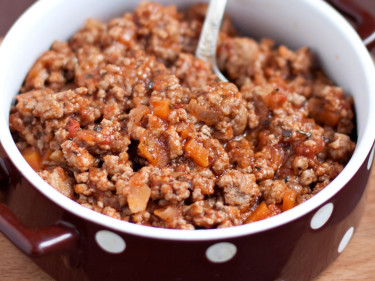The link between diet and mental health has attracted lots of research interest. Recent studies provide evidence that what we eat has an impact on our mood, and that mood can affect food choices! Think about how your food choices change when you’re stressed, upset, or bored, and how your mood changes when you eat healthy foods.
Research indicates that some dietary choices can make people feel tired and lethargic and have been linked to higher risk of depression and anxiety. On the other hand nutritious diets have been associated with improved energy levels, sense of well-being and improved immune function. Recent studies to improve dietary patterns suggest eating healthy can improve some indicators of mental health too!
1) Prebiotics and Probiotics
Prebiotics are a type of fibre. In the large intestine they act as food for probiotics, which are living microorganisms (typically bacteria) found in a healthy gut. These bacteria ferment some of the fibre components which help them to grow and produce particular compounds that keep your gut healthy and have other benefits. Prebiotics and probiotics are both essential for good gut health. Research is exploring how the activity of these healthy bacteria contribute to overall health and wellbeing. Current research suggests that gut bacteria plays an important role in mental health, diabetes, digestive health and cardiovascular disease.
Foods that are good sources of prebiotics include:
- Garlic and onion
- Leeks
- Artichoke
- Asparagus
- Bananas
- Barley and oats
- Legumes
- Flaxseeds
Foods that are good sources of probiotics include:
- Yoghurt
- Kombucha
- Kimchi
- Kefir
- Sauerkraut
- Tempeh
2) Omega-3 Fatty Acids
Omega 3 fatty acids are a type of ‘polyunsaturated’ (healthy) fat, essential for good heart health. Research indicates that omega 3 fatty acids also have important functions in brain health and are thought to contribute to mental health. Studies have found that the prevalence of mental health conditions, such as anxiety and depression, are lower in people who eat foods higher in omega 3 fatty acids, like the Mediterranean dietary pattern. Omega 3 fatty acids are also crucial to maintaining the structure of cell membranes to ensure healthy, functioning cells, particularly in the brain. This is thought to be one mechanism related to mental health.
Food that are good sources of omega 3 fatty acids include:
- Oily fish e.g. salmon, tuna, mackerel
- Nuts and seeds e.g. walnuts, chia seeds, and flaxseeds
- Vegetable oils, particularly canola or soybean
- Tofu
- Green leafy veg i.e. kale, spinach, Brussel sprouts
- Fortified products i.e. milk, breakfast cereals, bread, spreads, eggs
3) Magnesium
Magnesium is a mineral. It has specific metabolic functions relating to sleep, athletic performance and muscle relaxation. There is suggestive research linking magnesium to improvements in anxiety and depression which is thought to act on a hormone called serotonin, your ‘happy hormone’ that impact on your mood.
Foods that are good sources of magnesium include:
- Nuts e.g. cashews, almonds, peanuts
- Cooked potato
- Avocado
- Bananas
- Oily fish e.g salmon, tuna, mackerel
- Seeds e.g. pumpkin, flaxseeds
- Green leafy vegetables e.g. kale, spinach, broccoli
4) Fibre
Whilst prebiotics are classified as a type of fibre, there are also other fibre types found in an abundance of foods with links to better mental health. Insoluble fibre, also referred to as ‘roughage’, passes through your gastrointestinal tract completely undigested. This type of fibre helps you feel fuller for longer, aids with constipation, and keeps you ‘regular’. Soluble fibre forms a gel in your gut when combined with water. This type of fibre helps to moderate how much your blood sugar rises after a meal and contributes to lowering your cholesterol levels. In your large intestine the healthy bacteria break it down. Currently, there is a lot of research examining links between fibre, the gut bacteria, and mental health.
Good sources of fibre include:
- Fruits and vegetables
- Wholegrain cereals i.e. wholegrain/multigrain bread, oats
- Nuts and seeds
- Legumes i.e. chickpeas, beans, lentils
- Make sure to also drink enough water with fibrous foods!
5) Phytonutrients
Phytonutrients are substances found in plant foods. In your body, some types of phytonutrients are able to ‘mop up’ damaging compounds called ‘free radical’s that damage cell walls and cause inflammation by. Eating a variety of plant foods has been linked to slower ageing and to heart health benefits.
Good sources of phytonutrients include:
- Green tea
- Nuts and seeds
- Dark chocolate
- Fruits, especially berries
- Vegetables
The bottom line
Overall, you can probably see that’s there’s a lot of emerging evidence that nutrition can have a huge impact on mental health, and whilst some of the evidence is still new, it is definitely promising. If you’re wondering how much of these nutrients you’re eating in your diet, take our Healthy Eating Quiz to find out and receive personal nutrition advice and recipes! Most importantly, if you are concerned about your mental health, seek help from a professional, or visit Beyond Blue or Headspace.



